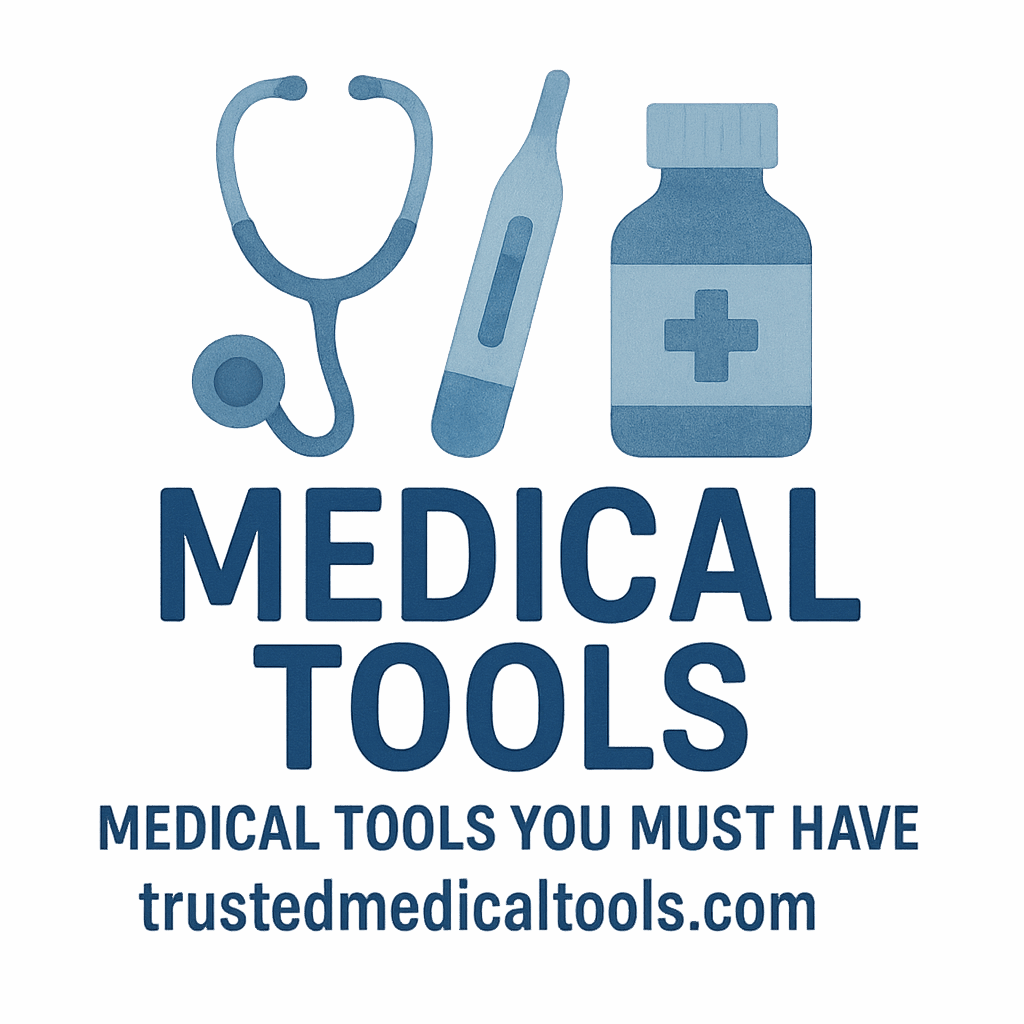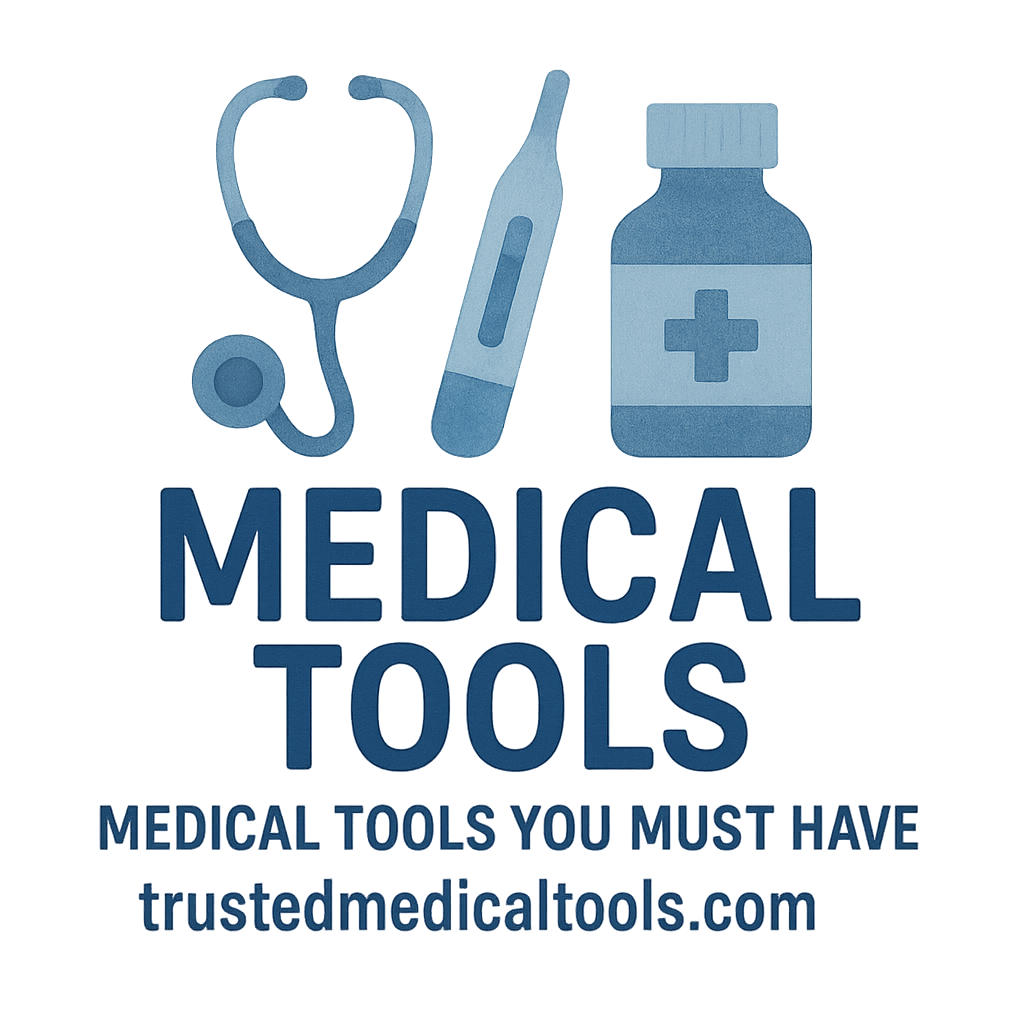Introduction: Why Preventative Health Matters
Preventative health is the cornerstone of long-term wellness for families. By using the right medical tools, we can avoid potential health issues before they even arise. Preventative care not only helps detect diseases early but also reduces the severity of conditions, improving quality of life and reducing healthcare costs. In this article, we’ll walk through 10 essential medical tools for preventative health that every family should consider. These tools are easy to use, accessible, and can make a significant difference in managing health at home.
1. Digital Thermometer
Why a Digital Thermometer is Essential
A digital thermometer is one of the most basic yet essential tools for every household. Whether you’re checking for a fever or monitoring symptoms, having an accurate and easy-to-read thermometer is key. Digital thermometers are highly accurate, quick, and versatile, allowing you to check temperature orally, rectally, or under the arm.
How to Use a Digital Thermometer Properly
To get the best results, ensure the thermometer is clean before use. Hold it in the correct position based on the method you’re using (oral, rectal, or axillary). After waiting for the beep, make sure you clean it thoroughly to prevent the spread of germs. You can get a digital thermometer at trusted medical retailers like Trusted Medical Tools to ensure the quality and reliability of your device.
2. Blood Pressure Monitor
The Importance of Monitoring Blood Pressure
High blood pressure, or hypertension, is often referred to as a “silent killer” because it doesn’t show symptoms until it causes significant damage. Regularly monitoring your blood pressure helps identify any potential issues early. For families, having a blood pressure monitor at home can prevent complications like heart disease, strokes, and kidney damage.
Choosing the Right Blood Pressure Monitor
When selecting a blood pressure monitor, opt for one that is easy to use, accurate, and comfortable. Automatic wrist or arm monitors are typically user-friendly and ideal for home use. For more advanced features and accurate readings, you can visit Trusted Medical Tools for expert recommendations.
3. Pulse Oximeter
What is a Pulse Oximeter and Why It’s Crucial
A pulse oximeter measures the oxygen level in your blood, which is critical for assessing respiratory health. Low oxygen levels can indicate underlying conditions like asthma, pneumonia, or other serious respiratory issues. Regular monitoring, especially for individuals with existing lung or heart conditions, is crucial for detecting problems early.
How to Use a Pulse Oximeter for Accurate Readings
To use a pulse oximeter, place it on your finger, and wait for the device to show your oxygen saturation level and pulse rate. Make sure your hands are warm, and you’re relaxed to avoid inaccurate readings. A pulse oximeter is easy to use and essential for proactive health management at home.

4. First Aid Kit
Essential Items for Your First Aid Kit
A well-stocked first aid kit is crucial for any household, as injuries can happen unexpectedly. Your kit should include bandages, antiseptics, gauze, pain relievers, tweezers, and other essentials to handle minor injuries and illnesses at home.
How to Assemble a First Aid Kit for Family Health
Assembling a first aid kit doesn’t have to be complicated. Start with the basics: band-aids, disinfectants, medical tape, and scissors. Add items specific to your family’s health needs, such as allergy medications or a thermometer. You can also find ready-made first aid kits from trusted suppliers like Trusted Medical Tools.
5. Glucometer (Blood Sugar Monitor)
Managing Diabetes with a Glucometer
For families with individuals at risk of diabetes or already diagnosed, a glucometer is an essential tool for monitoring blood sugar levels. Regular checks allow for better management of the condition, reducing the risk of complications like heart disease, nerve damage, or kidney problems.
Why Regular Blood Sugar Checks are Crucial for Family Health
Even if no one in your family has been diagnosed with diabetes, it’s a good idea to keep a glucometer on hand for regular checks. Detecting high or low blood sugar levels early can help prevent serious conditions and keep everyone’s health in check.
6. Home ECG Monitor
What is an ECG Monitor and How It Helps
An ECG monitor records the electrical activity of the heart, allowing you to identify heart rhythm issues early. It is especially useful for families with a history of heart disease or individuals who may be at risk for heart-related conditions.
When and Why to Use a Home ECG Monitor
A home ECG monitor is ideal for individuals with existing heart conditions or those who experience irregular heartbeats. If you notice symptoms like dizziness, shortness of breath, or chest pain, it may be a good idea to check your heart health. Always consult a doctor if you have concerns about your readings.
7. Thermometer Gun (Infrared Thermometer)
Quick Temperature Readings with Infrared Technology
A thermometer gun, or infrared thermometer, offers a fast, non-invasive way to take a temperature reading. Simply point the device at the forehead or ear, and the thermometer gun provides an accurate reading in seconds. It’s perfect for families with young children or anyone who dislikes the traditional methods of temperature taking.
How Accurate is a Thermometer Gun?
Thermometer guns are generally accurate when used correctly. For the best results, follow the manufacturer’s instructions and ensure that the forehead is clean and dry before measuring. They are especially useful in busy households where quick readings are needed.
8. Stethoscope
Listening to Your Heart and Lungs: Why a Stethoscope is Important
A stethoscope is a great tool for listening to your heart and lungs, offering a simple way to monitor heartbeats, breathing, and even lung sounds. Regular checkups at home can help you catch symptoms of illnesses like pneumonia, asthma, or heart conditions early.
How to Use a Stethoscope at Home
Using a stethoscope is straightforward. Place the diaphragm on the chest and listen for abnormal heartbeats or irregular breathing. If you detect anything unusual, it’s time to consult a healthcare professional.
9. Nebulizer
How Nebulizers Help with Respiratory Health
For individuals with asthma or chronic respiratory issues, a nebulizer can be a life-saving tool. This device helps deliver medication directly into the lungs, making it easier to breathe during an asthma attack or other respiratory issues.
When Should You Use a Nebulizer at Home?
A nebulizer should be used according to the doctor’s instructions, typically when respiratory symptoms worsen. It’s a vital tool for families with members suffering from asthma, COPD, or other lung diseases.
10. Weight Scale with BMI Measurement
The Role of a Weight Scale in Maintaining Healthy Body Weight
A weight scale with BMI measurement is an essential tool for tracking your family’s weight and overall health. Maintaining a healthy weight is crucial for preventing obesity, diabetes, and heart disease.
Understanding BMI and its Relevance to Family Health
BMI (Body Mass Index) is a simple measurement of your weight in relation to your height. While it’s not a perfect measure, it can help you understand whether your weight is in a healthy range. Tracking BMI over time can alert you to potential health risks.
Conclusion: The Importance of Preventative Health Tools
Investing in the right medical tools for preventative health can make all the difference in your family’s well-being. Tools like digital thermometers, blood pressure monitors, and first aid kits ensure you’re prepared for emergencies while keeping track of your health on a daily basis. These devices empower families to take control of their health and detect potential problems before they become serious.
For high-quality, reliable health tools, check out the comprehensive selection at Trusted Medical Tools, where you can find everything from basic tools to advanced monitoring devices. Keeping your family safe and healthy has never been easier!
FAQs: Frequently Asked Questions
- Why is it important to have a pulse oximeter at home?
A pulse oximeter allows you to monitor oxygen levels, which is critical for managing respiratory issues like asthma or COPD. - How often should I check my blood pressure at home?
For most people, checking blood pressure at least once a week is a good practice. Those with hypertension may need to check it more frequently. - Can I use a thermometer gun for infants?
Yes, a thermometer gun is safe for infants. Just be sure to follow the instructions for accurate readings. - What is the best way to store a first aid kit?
Keep your first aid kit in a cool, dry place, easily accessible in case of an emergency. - How do I know if I need a nebulizer?
Consult with a doctor if you or a family member experiences frequent respiratory issues, such as asthma attacks or difficulty breathing. - What is the most important medical tool for family health?
All of the tools mentioned are important, but a digital thermometer and first aid kit are especially essential for emergency situations. - Can a glucometer help with early detection of diabetes?
Yes, regularly using a glucometer can help detect abnormal blood sugar levels, which is crucial for preventing or managing diabetes.


